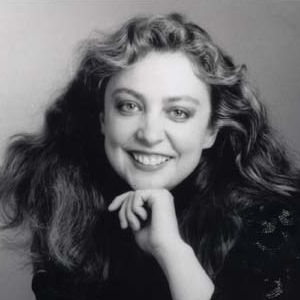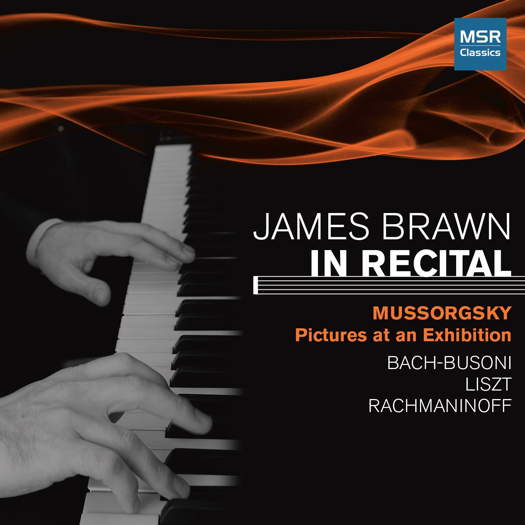- Slovenia
- Francisco Kraus Trujillo
- Yasushi Akutagawa
- holocaust
- England
- Gabriele Sima
- Lou Harrison
- J S Bach: St Matthew Passion
Packed With Good Things
RODERIC DUNNETT reports from the
2019 Three Choirs Festival in Gloucester
Literary events featured too: notable were a talk on Ivor Gurney, poet and composer, whose work - chamber, symphonic, and above all songs - is now being resuscitated on a large scale, and a son of Gloucester, until incarcerated in an outer London asylum. This was by April Fredrick, later an enraptured soloist in the subsequent Joubert oratorio. Fredrick has made substantial researches into aspects of Gurney, and as a key committee member of the Ivor Gurney Society who edits its first-rate annual Journal, she is an ideal person to reflect on Gurney's childhood, college life, writings, music - a lot more is being recovered - and his continuous inspiration from and passion for Gloucestershire. Gurney was indeed one of Gloucester's treasures, and to find out why was of obvious benefit to those attentively listening.
Balancing this was a revealing recital with voices and handbells recalling Gurney's closest friend, the solicitor and poet F (Fred) W Harvey, in the very church he would have known from childhood: Minsterworth, six miles south west of Gloucester by the River Severn, where Harvey's family lived and where Gurney spent swathes of time trying out his early songs with his friend, who was a very acceptable baritone. Harvey was captured and interned in Germany, at Ruhleben, six miles west of Berlin, during the First World War, but Gurney, in elegiac poems, believed him dead. Also turning to the Great War, Dr Timothy Brain, the Gloucester Festival chairman, in 'The Peace that never was', looked at the ominous consequences of the fatal 28 June 1919 Armistice, in a year of uprisings, massacres, new wars, short-lived Communist insurrections, epidemics and new-born countries seizing independence from the collapsed Austro-Hungarian Empire.
Ralph Allwood has assumed yet more meaningful roles since leaving his permanent job - almost three decades - at Eton. First, of course, he continues to run the almost forty-year-old Eton Choral Courses, founded by him, which now have a section reaching down to as young as 8-15, run recently at Cheltenham and Wellington. He conducts an acclaimed youth chamber choir, set up with Ed Watkins of Bishop Thomas Grant School, now the West London Free School, called Inner Voices choir, which draws together talented young singers from London state schools. He also weds running the choirs at Queen's College, Cambridge and Trinity Laban (at the old Royal Naval College with its fabulous painted chapel).
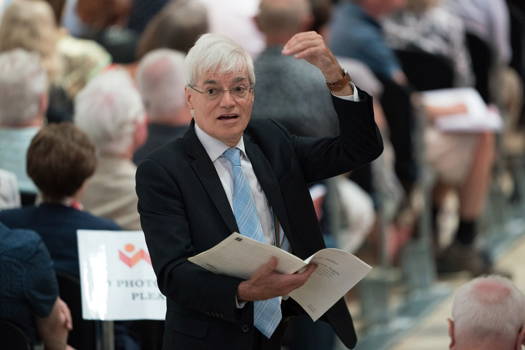
Ralph Allwood directing the evocative and articulate Rodolfus Choir. Photo © 2019 Michael Whitefoot
The three decades-old Rodolfus Choir, aged 16 to 25, which has performed regularly at the Three Choirs, is drawn from the Eton courses. Seventeen girls and twelve boys/men took part in this concert, which each year offers a conspectus of a range of composers, from Elgar to seven pieces by John Tavener, culminating in 'Butterfly Dreams', an exquisite longer piece (recorded by Polyphony) exploring the writings of the philosopher Chuang Tse (Zhuang Zhou: 'Once I dreamt I was a butterfly ...'), the (presumably) Latvian Kari Kokko, the eighteenth century Japanese poets Yosa Buson and Kobayashi Issa, Pavel Friedmann (who wrote the poem 'The Butterfly' in Terezín and died at Auschwitz) and American Indian (Acoman, New Mexico). It divides into three or four parts in each voice - a measure of this young choir's prodigious talents, on which Allwood can audibly rely.
Haiku figures here, hence the pieces are pretty short. Tavener saw the end product as 'sacred' despite their mostly secular content. Two pieces are very much in the repertoire of the beautifully phrased, immensely able - and agile - Rodolfus. These are settings of Debussy and Mahler by Clytus Gottwald. His achievement in creating these transpositions has long been recognised by Allwood, and it was no surprise to find them in this exquisitely prepared programme from these cultivated and flawless young singers.
The Armed Man, Sir Karl Jenkins' best known and most popular work, came early in the week. Prefacing it was an interestingly scored work by Giles Swayne. The Three Choirs Festival Youth Choir, founded some years back by Adrian Partington, and soloist Gregory Bannan, formerly a chorister of Christ Church, Oxford, joined in Swayne's extract from Herman Melville's Moby Dick, in which Captain's Ahab's mood ('Where lies the final harbour, Whence we unmoor no more?'), turns eventually to dark as he contemplates his tussle with - and violent injury by - the whale of that name.
Samuel Hudson, poised to take over Worcester and head the Festival next year, showed his precision and command both here, in the sensitive and wilder seaborne moments, and in the Jenkins work. It does as expected start with a buoyant, spirited chanting of the jaunty French medieval chanson L'homme armé. Here again the clarity of words was vital, and with secure, nuanced conducting these young performers delivered each line gratifyingly, not least in the expressive section from the ancient Indian Mahābhārata. Much was captured well: the atmospheric feel of the (Islamic) call to prayer; the marvellous triple piano of the girls, then all, in the Kyrie; the perfectly tuned plainsong delivery of the boys/men - 'Mine enemies would daily swallow me up' - and that movement's explosive drumming conclusion; plus the enchantingly managed dancing (and extended) Sanctus, interspersed by trudging strings before the final Hosannas.
One credit to Jenkins is that he keeps the sections differentiated, and the whole on the move. Two stanzas of syncopated Kipling pass rather quickly, but an unusually clangorous section of Dryden burst upon us with organ, vigorous trumpets and determined drumbursts - the last continued in part eight. The sadness of bells and trumpet leads to solo passages - with a few interesting harmonies - set against choir, like a sad funereal mourning, the vivid text being from a witness of the 1945 Hiroshima bombing. In the Mahābhārata section the girls in particular brought precision to the semistaccato, almost pointilliste setting - as they also did in the Agnus Dei. (Jenkins incorporates from the Mass the Kyries, Sanctus, Benedictus and Agnus.) 'Now the Guns have Stopped', for the soloist, is still, almost silent, with minimum accompaniment. Instrumentalists from the Philharmonia Orchestra brought all their expertise to bear, not least in Jenkins' short or long interludes. This was - arguably - a good choice for a youthful choir, and Hudson and the young choir effortlessly did it justice.
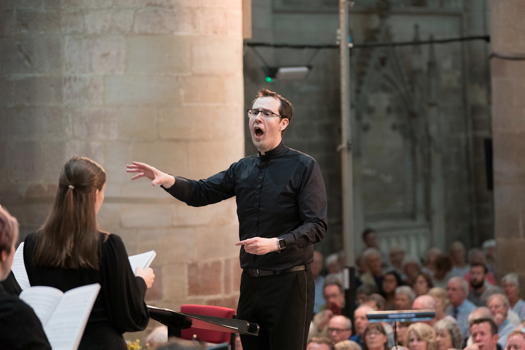
Samuel Hudson, Worcester Cathedral's new Organist and Director of Music, animates the Three Choirs Festival Youth Choir, prising from them all a riveting performance of Karl Jenkins' The Armed Man. Photo © 2019 Michael Whitefoot
The Three Choirs' major 2019 commission was a new Christmas Oratorio from the ever-popular Bob Chilcott, Not surprisingly this premiere, in such a vivid performance, proved a palpable success. Several solo roles figure, especially the Evangelist (narrator) - tenor Nick Pritchard - who delivered the unaccompanied or delicately orchestrated Gospel narrative inspiredly. The outcome was pleasing overall: Chilcott's recitative does have a Bach-like feel, yet is both fluent and varied - and utterly original.
Four congregational hymns serve as fulcra, for which he has provided fresh descanted tunes of his own; his deployment (particularly) of harp (and flute) feels quite magical, lending warm, sensitive colouring to the mezzo-soprano (Dame Sarah Connolly); while the bass (Neal Davies) takes the lead in Chilcott's marvellous, individual and expressive treatment of the Nunc Dimittis. His verses set include a charming four-stanza Nativity ditty by Robert Herrick - 'Tell us, thou clear and heavenly tongue, Where is the babe but lately sprung?' - and a typically delightful, well-known poem by Christina Rossetti - 'Worship we the Godhead, Love incarnate, Love divine'.
Chilcott's hymn texts included originals or translations by those (mainly) Victorian stalwarts of the trade, G R Woodward, J M Neale and Chatterton Dix. The advantage here is that such a Christmas Oratorio is uplifted, and lent warmth, by familiarity. Thus the concept is, at least in large part, apt. The bright and attentive chorus here was the Three Cathedral Choirs, grown-ups and boys, conducted by Adrian Partington, and evincing fine enunciation and a beautifully balanced, rather fabulous unified sound. We know from Bob Chilcott's St John Passion (Wells, 2013) how he can turn his gifts to thrive in a larger format. The work, a little uneven but ebullient and heartening, should serve adventurous choral societies well on future occasions.
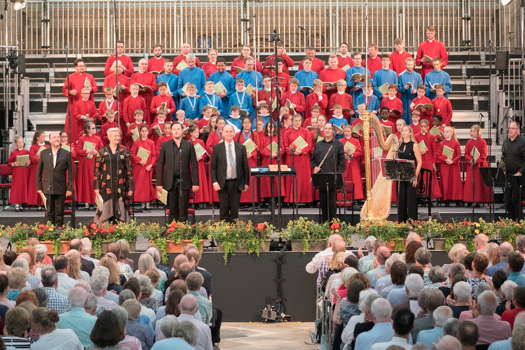
Adrian Partington and The Three Cathedral Choirs of Gloucester, Hereford and Worcester win their spurs in the first performance of Bob Chilcott's Christmas Oratorio. Photo © 2019 Michael Whitefoot
English Song often figures large at the Three Choirs, and is particularly well supported. Tenor Joshua Ellicott, with Debussy, Poulenc and Reynaldo Hahn added, took in Frank Bridge (three songs) and John Ireland (two), but also a collection of ten - a cycle by Finzi. He confirmed his enjoyable range by including Haydn Wood's marvellous Great War song 'Roses of Picardy': Joshua's great uncle Jack (1896-1916) - a fatal year to be born, making him eighteen at the outbreak of war - and the letters at the time of his death at the front make moving reading.
James Gilchrist ended his recital with Ralph Vaughan Williams' On Wenlock Edge; but equally strikingly, he launched out with a performance of Ian Venables' Songs of Eternity and Sorrow. It's a cycle of four Housman poems, the poignant 'If in that Syrian Garden' is the start, and a charmingly similar eight-line poem to 'Loveliest of Trees'. But it is doubly original, for including Housman's savage poem 'O who is that young sinner, ... for the colour of his hair', an outcry against the homosexual repression (and imprisonment) of his day, and seemingly the only setting of those most tragic lines. It easily, especially in a performance as impassioned as Gilchrist's, confirmed Venables' extreme prowess as a song composer.
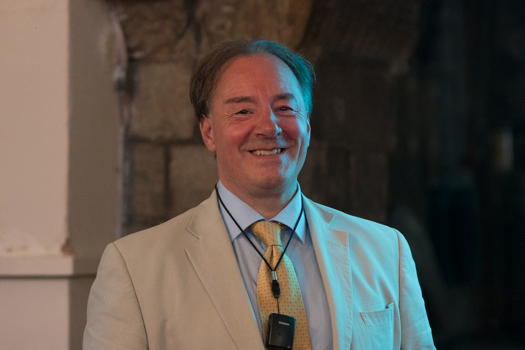
Ian Venables, a master of English Artsong, was featured in two concerts, an Evensong and a lecture. Photo © 2019 Michael Whitefoot
One of Roderick Williams' many gifts (invariably accompanied by the deft and lithe Susie Allan) is a willingness to look into the music of 'lost', 'disappeared' or 'ignored' composers. Here, in his affable and inimitable way, Williams celebrated, with strikingly brisk songs, three women composers: the Welsh Elaine Hugh-Jones (born 1927), Pamela Mellor, widow of the late Fred Tomlinson, who would be ninety now, and Bernadette Marmion (born 1938). Elaine Hugh-Jones stood out for her setting of another poignant poem of Housman - 'Strapped, noosed, nighing his hour' ... 'and then the clock collected in the tower its strength, and struck' - about a doomed young man awaiting his imminent execution: it shares Housman's usual empathy with the hapless underdog, and with the young: was the lad guilty, and did even that justify this remorseless end?
Ian Venables, as suggested above, is recognised today, deservedly, as a supreme master of English artsong, He contributed the world premiere of a new Yeats setting ('What then?' - 'The work is done' (grown old he thought) 'According to my boyish plan ...') - a progress from schoolboy to old age, and a questioning of what, in the round, life is for. Venables' early Three Pieces for violin and memorable anthem 'O sing aloud unto God' each featured during the week; as did his instructive lecture entitled 'A History of English Song'. The recital also embraced another, more popular Yeats poem, 'When you are old and grey and full of sleep', uncovered by Williams, and by Bernadette Marmion.
This uplifting recital's conclusion was joyously resourceful and intriguing: a typically ingenious and witty cycle promoted by Williams. (Sir) Arthur Somervell is sometimes seen as not the most inspired of Stanford's (and Parry's) pupils. He did in fact, in 1904, produce the first known cycle of songs (ten settings) based on Housman. His song cycle Maud (1898; 22 sections, 113 stanzas in all) selects delicious units from Tennyson's 1855 poem or 'monodrama' of that name. It indeed includes the much parodied 'Come into the garden, Maud': so many of the songs are sprightly or reflective, but some desolate and darker: Williams' recital brought all that gloriously to life. All in all, it's a tantalisingly good work, sung seriously or part tongue-in-cheek, and especially when so fabulously expounded as here.
Review continues on the next page >>
Copyright © 31 August 2019
Roderic Dunnett,
Coventry UK



